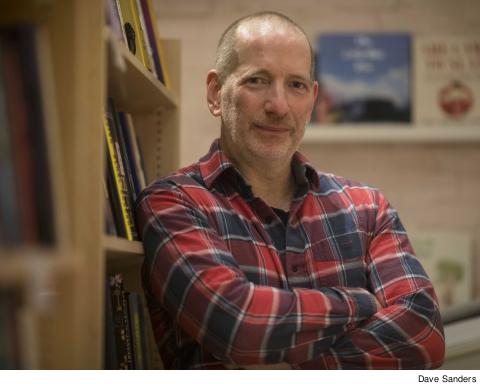Are we giving students the right tools?
 |
I get asked a lot: How could I possibly be against critical thinking? In a moment dominated by “truthiness,” “fake news” and Donald Trump – who, as Masha Gessen notes, blatantly lies in order “to assert power over truth itself” – don’t we need critical thinking more than ever?
I’m not against critical thinking. But I would argue that there is an institutional formation – let’s call it Critical Thinking – that is preventing those of us in the humanities from actually using critical thinking to oppose corporate and government power.
In some ways, Critical Thinking is a victim of its own success. Every few months, the Wall Street Journal or Forbes will run an article about how corporations need employees with strong Critical Thinking skills. And we repeat this back to our students – the philosophy department at Kingsborough Community College, for example, offers this reason for studying philosophy: “Employers cannot find enough people to hire who are skilled in Critical Thinking.”
TOUGH QUESTION
As a result, we humanities professors tend to justify our work by declaring: “We teach Critical Thinking.”
But philosophy teaches us that once something becomes ubiquitous, it also becomes essentially meaningless. If everything we do counts as Critical Thinking, then nothing actually functions as critical thought anymore.
As critical theorists, we’ve struck a collective bargain in order to maintain a few crumbs of public support for the humanities. In return for being allowed to continue to teach “nonmarketable” (i.e. “useless”) areas of study – literary studies, art history, philosophy, critical theory and any forms of historical and foreign language study not directly tied to US foreign policy or business interests – we have told students (and ourselves) that these subjects would prepare them for the job market. Why? Because studying the humanities teaches them Critical Thinking.
But if Critical Thinking is one of the prerequisites for success in corporate and neoliberal society, as students are constantly being told, can it still be part of a fundamental critique of this very success and this very society?
Today’s compromised, institutional version of Critical Thinking is the pedagogical expression of what Mark Fisher has called “capitalist realism,” which acts as “a kind of invisible barrier constraining thought and action.” Most Critical Thinking textbooks claim to make students question everything, but immediately limit the context of their questions. For example, Richard Paul and Linda Elder’s authoritative Critical Thinking: Tools for Taking Charge of Your Professional and Personal Life sets out “Universal Intellectual Standards” for judging critical thinking. Describing the standard of “clarity,” they offer an example of an “unclear” student question: “What can be done about the education system in America?” They go on to suggest a “clearer” version of the question: “What can educators do to ensure that students learn the skills and abilities which help them function successfully on the job and in their daily decision-making?”
PRESERVING ORDER
It does not take much effort to see that Critical Thinking, in this case, is designed not to encourage students to question the status quo, but rather to “ensure” that they preserve the current state of affairs in order to find their place in the contemporary pecking order.
But today’s college students – saddled with massive debt and facing a bleak job market marked by gaping inequality – are seeking not just job skills, but ways to confront the deeply dysfunctional political, economic and educational systems they have inherited. Recent studies suggest that a large percentage of college students have serious critiques of capitalism and increasing support for socialism; even the Wall Street Journal has noted the trend.
The right-wing press blames “indoctrination” by insidious leftist faculty. But students are simply reacting, in true critical fashion, to what they see all around them. Young people leading the climate justice movement see capitalism hurling the world toward total annihilation. Students leading movements against gun violence, police brutality and institutional racism understand that young people in the United States are 23 times more likely to be killed by guns than their peers in other high-income countries – and that young people of color are disproportionately affected. They see a future of student debt, un- or underemployment and a political system that refuses to respond to them.
CREATING A BETTER WORLD
So yes, students need critical thinking today more than ever, but not a compromised, market-friendly version. The task is to defend the knowledge produced by the humanities, which can help students better understand and change their structural realities, not as fancified job training but as a good in itself – indeed, as a public good that should be freely available to all. And since the most traditionally disenfranchised students are most affected by cuts to education funding – which tend to hit the humanities first – we need to be clear: the so-called “crisis of the humanities” is in fact a form of class warfare.
Our job shouldn’t be to help students “succeed” in the world our generation has created, but to rather give them the tools to create a better world.
Anthony Alessandrini is a professor of English at Kingsborough Community College and of Middle Eastern Studies at the Graduate Center.

